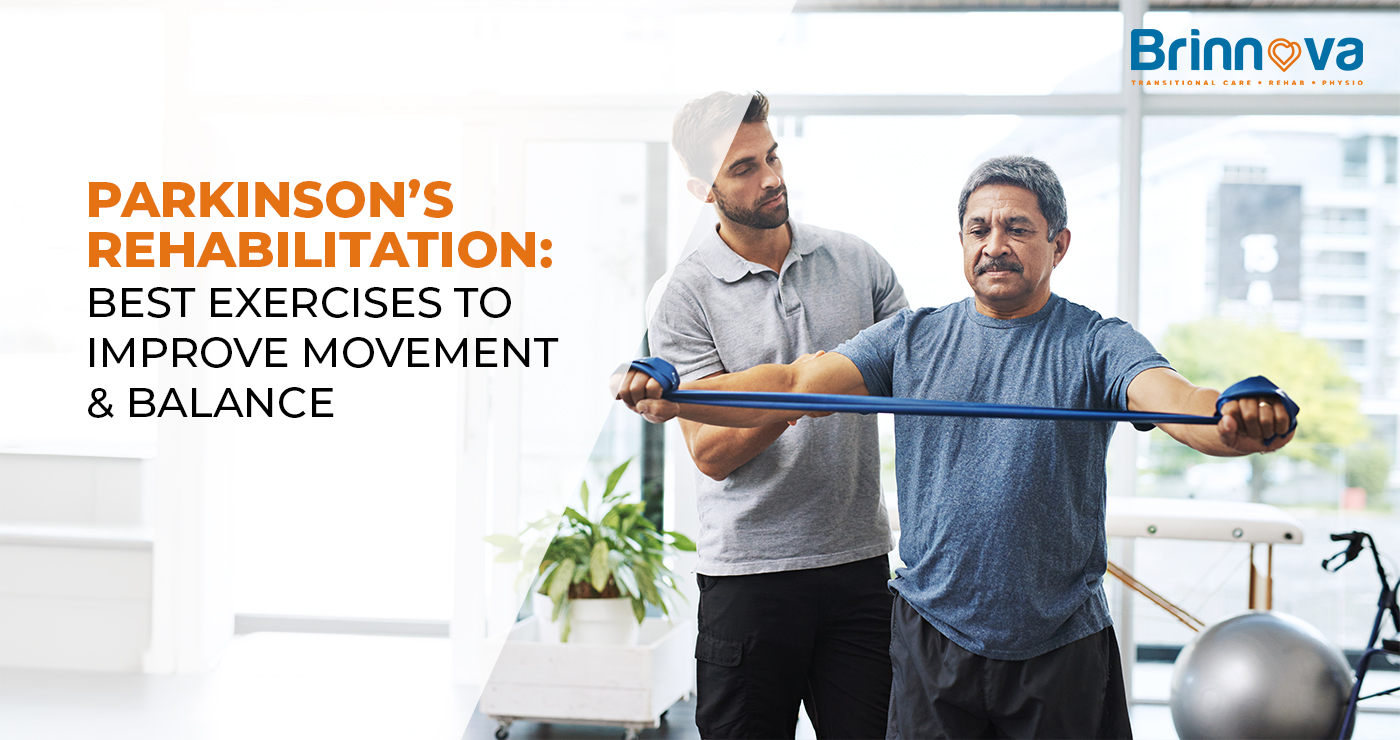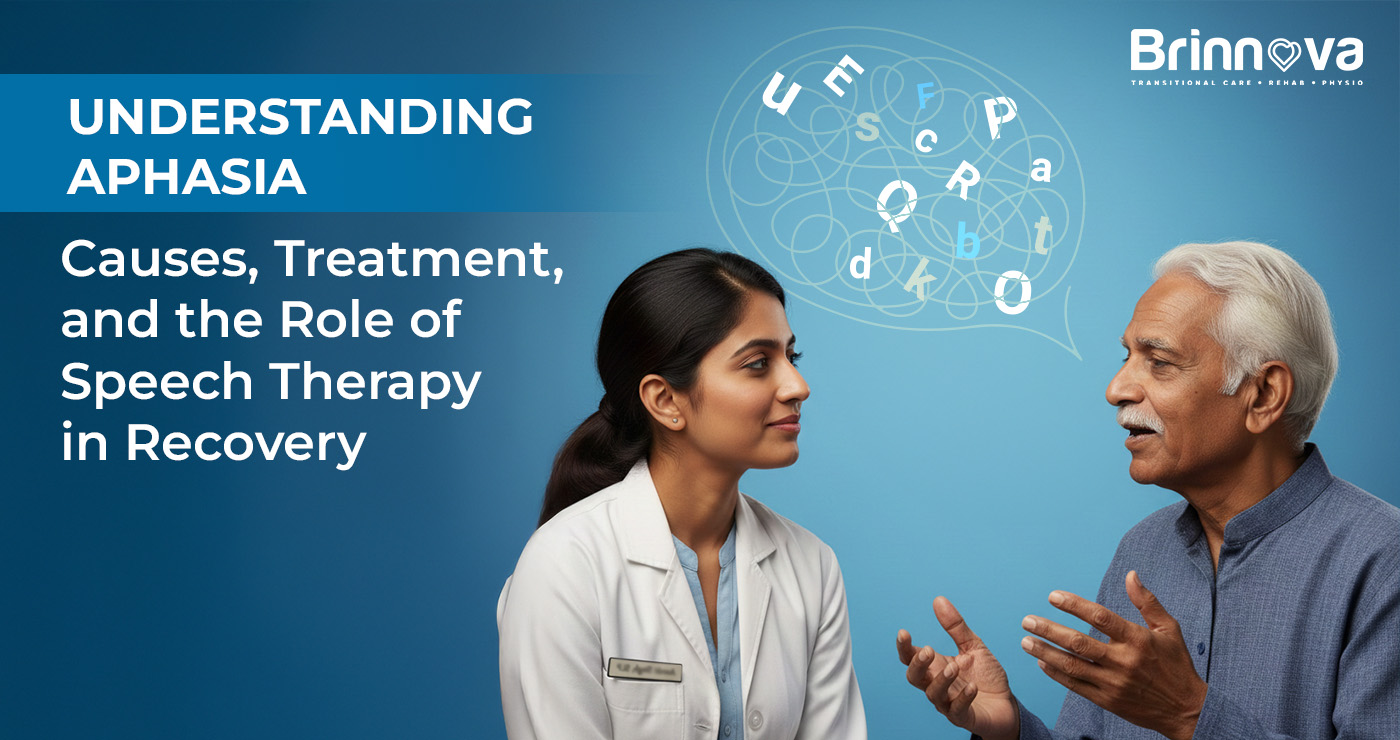The Power of Movement: Geriatric Physiotherapy for Cognitive Health and Emotional Well-being
As our population ages, especially with the gradual rise in the elderly, the need for specially trained medical personnel also increases, and geriatrics physiotherapy is at the frontline of addressing the unique challenges of the elderly. It is no longer limited to physical rehabilitation and pain control. Instead, cognition becomes a primary target and improvement of the emotional status is expanded. This is what we need: more awareness about the power and advantages of movement and exercise in senior citizens to the extent that it can add up to the quality of their lives.
Understanding Geriatric Physiotherapy
While geriatric physiotherapy focuses on the individual needs of elderly people, the treatment methods may vary depending on the person. It facilitates construction, restoration, and sustaining and boosts maximum physiological well-being. This kind of active therapy is the basis of the treatment or prevention of age-related problems starting with arthritis and osteoporosis, simply finishing with an imbalance and even Alzheimer's disease. Through the application of geriatric physiotherapy exercises into daily lifestyles, such as indoors, outdoors, lifestyle or hobby exercises, the elderly can regain their independence and mobility.
Creating a Healing Partnership
The relationship between physiotherapist and patient is a contextual formation based on empathy, trust, and a common goal. An accord capable of fostering mutual trust and respect may be considered a solid basis for the patients to commit to the proposed treatment schemes. Psychology as a subject lies at the very core of physiotherapy and here the physiotherapists focus on factors like the ability to communicate with patients on their terms as well as to address their issues which all enhance patient-therapist alliance.
Benefits of Geriatric Physiotherapy
One of the advantages of geriatric physiotherapy is:
- Enhancement of Neuroplasticity:The essence of the interventional approach to geriatric physiotherapyis neuroplasticity, the ability of the brain to restructure and form new neuronal connections. Through the rerouting capacity, the ability to recover brain injuries and compensate for the deterioration in the cognitions will be enabled. Reduction in the Risk of Cognitive Impairment: Research finds that participation and performing exercises on a day-to-day basis which increase our heart rates such as exercise and recreational activities help lower the risk of developing cognitive impairment. These include dementia and Alzheimer's disease.
- Improvement in Sleep Patterns:Geriatric physiotherapy to improve sleeping quality which is basic for cognitive functioning can, therefore, be taken as a starting point. It is a good sleeping one which helps remember and clean the brain with toxins that are in a stored form during waking hours.
- Stress Reduction: When we exercise we already relieve stress. The main goal of geriatric physiotherapy exercisesis to alleviate stress which eventually guards against stress-related memory loss and in general enhances mental health.
- Increase in Brain-Derived Neurotrophic Factor (BDNF):The elevation in an endogenous protein BDNF (Brain-Derived Neurotrophic Factor) by physical exercise, which sustains the growth of existing neurons and their regeneration is important for cognitive functioning.
- Enhanced Executive Functions: Regular exercise is shown to be beneficial for executive functioning in older people, as he or she can better attend, control balance and shuffle his or her priorities. This is very significant as planning, multitasking and inhibition help one to achieve independence in daily life.
- Social Interaction and Cognitive Stimulation: A lot of geriatric physiotherapy programs involve group exercise classes which appear to be beneficial for mental health and cognitive functioning as well, as people enjoy being together in the company of others while participating in group activities, talking with their fellow participants thus stimulating their cognitive skills.
- Mood Improvement and Cognitive Function: Mood uplifting, a push for regular physical activity, can cause mental health improvement in the brain. A state of positive emotionality has been associated with reductions in depression and anxiety, which can negatively influence cognitive clarity and processing rapidly.
- Emotional and Psychological Well-being: One of the key roles of geriatric physiotherapy is the sharing of emotional well-being. Active forms of exercise are proven to release endorphins, a.k.a. 'feel-good' hormones which are natural neurotransmitters that cause to uplift your mood. Additionally, achieving goals set in therapy can significantly boost confidence and self-esteem among the elderly, reducing feelings of depression and anxiety.
Choosing the Right Geriatric Physiotherapy Programme
When choosing the best geriatric physiotherapy hospitals, it is important to focus on the quality of the service and level of expertise along with equipment and facilities. Pay attention to those places which deliver personalised therapy plans, tailored for every patient, as they are necessary to satisfy everyone's needs of the old patients. The blueprint of that plan has to be based on the diversity of workouts that fulfil the aims of the physical and mental activities.
The Role of Geriatric Physiotherapy Exercises
Incorporating specific geriatric physiotherapy exercises into the daily routine can be life-changing in the following ways:
- Flexibility and Joint Well-being: Exercises like stretching and movability exercises, which bring in motion, are significant as far as maintaining joint health and flexibility. These activities are designed for stretching, unwinding, and unblocking so that the patient feels less strained and has better movement patterns during daily activities with less discomfort.
- Resistance Training:The use of light resistance training using dumbbells and bands can contribute to the elimination of degenerative disorders such as muscle mass and bone density which drastically become low with age. This being the case, this type of exercise is vital for addressing correct posture and improving movement abilities.
- Endurance Exercises: Getting active with activities like walking or stationary cycling targets cardiovascular health and stamina. Proper functioning of the heart and lungs and sufficient oxygen supply is a necessary condition of well-being and it allows you to feel fully energised during daily life.
- Breathing Exercises: Many specialists during the patients' physiotherapy include breathing controls. This is handy when working with geriatrics, especially those with respiratory conditions. The blowing exercises help to increase lung capacity and improve supplying oxygen to the brain and muscles, which is one of the essential functions necessary for the effective functioning of those parts.
- Coordination Exercises: Activities that engage coordination, for instance, dancing or certain kinds of aerobics, could assist in improving motor skills and balance thus can help reduce the likelihood of slipping accidents and injuries. The result of these exercises is now the excitation of many brain areas used for coordination and motor control.
- Customised Exercise Plans: Physiotherapists have to do this by creating individual exercise plans adapted to individuals’ capabilities and prevailing health conditions. Personalisation of practices prevents patients from making movements that pose a threat to health thus denying chance of harm while allowing for improved performance.
- Monitoring and Progression: The physiotherapists track the process to understand the extent of adjustment of the exercises every time there is improvement in fitness and mobility, or the health status has changed. Such a process will guarantee that the exercise program is beneficial for the whole duration of the training.
- Integration with Other Therapies: An integration of geriatric physiotherapy exercises in occupational therapy or speech therapy could be used for holistic health enhancement, which aims to cover all aspects of an older person's well-being in one go. Physiotherapists have to do this by creating individual exercise plans adapted to individuals’ capabilities and prevailing health conditions. Personalisation of practices prevents patients from making movements that pose a threat to health thus denying chance of harm while allowing for improved performance.
Rehabilitation at Brinnova
Geriatric physiotherapy offers a holistic approach to ageing, focusing on physical health, cognitive function, and emotional well-being. For those seeking comprehensive geriatric care, Brinnova stands out as a leader in rehabilitation services. Our team of dedicated professionals and tailor-made therapy programmes ensure that every patient receives the best possible care, aiming to improve their quality of life significantly. As we acknowledge the challenges that come with ageing, we reassure you that our team at Brinnova provides the support and care needed to manage these challenges effectively. Whether it is through enhancing mobility, maintaining mental function, or boosting emotional health.




